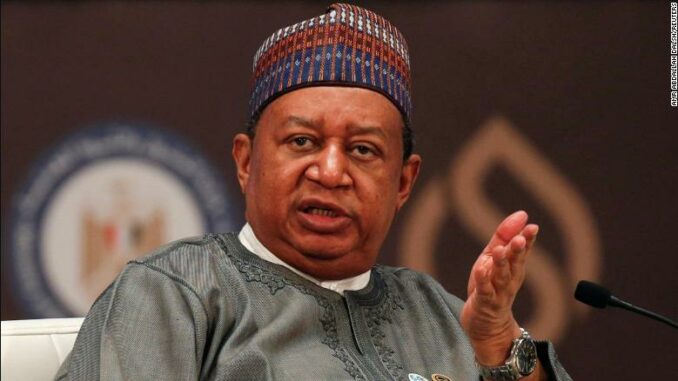
The secretary general of the Organization of Petroleum Exporting Countries (OPEC), Mohammad Barkindo of Nigeria, died on Tuesday, official sources said. He was 63 years old.
The reason for his death, which surprised many, was not disclosed. The Vienna, Austria-based oil cartel also confirmed his death, saying he was a “highly valued leader” at OPEC.
Just hours before his death, he met with President Muhammadu Buhari. His second term as head of OPEC, a post he had held since 2016, was due to end in three weeks’ time on 31 July. He was due to join the US think tank Atlantic Council next month.
Mohammad Barkindo has led the bloc of crude oil producing countries through a turbulent period, marked by major crises such as the war in Ukraine and the coronavirus pandemic, which had precipitated the fall in oil prices.
OPEC’s 13 Member States have 1.24 billion proven crude oil reserves, or 80% of the world’s total.
During his tenure, Barkindo has advocated for a greater role for the private sector in discussions on energy transition. He has stood firmly on the side of oil producers who argue that more investment in oil and gas is needed until the world is able to run on alternative forms of energy.
It was also under his leadership that the oil cartel reached an agreement known as “OPEC+” with Russia, the main oil producing country not a member of the organization. This agreement, led by Saudi Arabia and Russia, has helped stabilize oil markets.
Born in Yola, eastern Nigeria, Barkindo began his career at the Nigerian Mining Corporation in 1982 before holding multiple positions for more than two decades at the Nigerian National Petroleum Corporation, including as CEO. He also served as Deputy Managing Director of the Nigerian Liquified Natural Gas.
A seasoned diplomat, Mohammad Barkindo led Nigeria’s technical delegation to the UN climate change negotiations for many years and served several terms as vice-chair of the UN Conference of the Parties on climate change.
